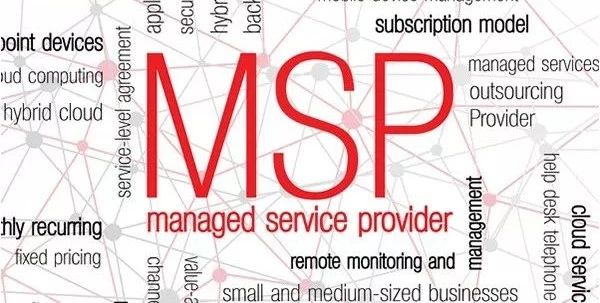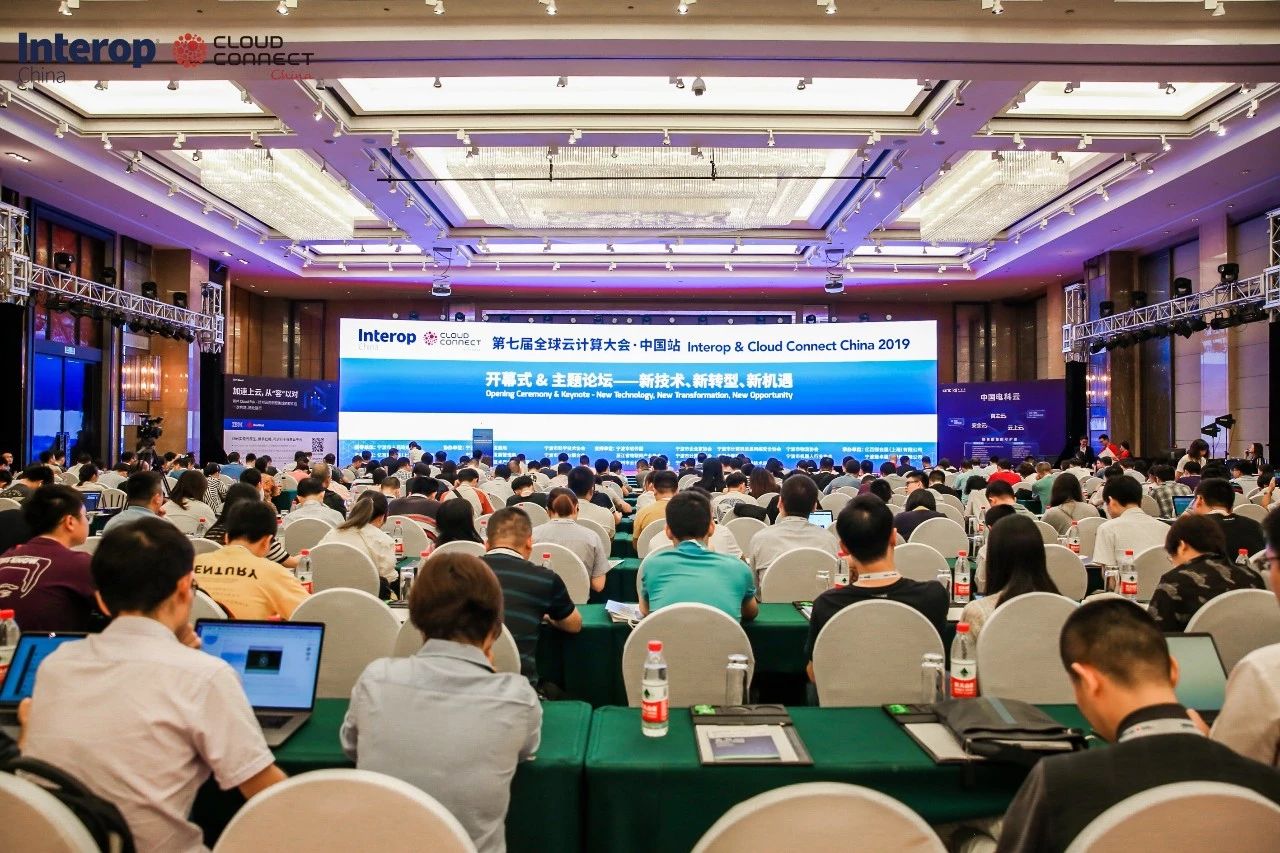The following article is sourced from Tech Cloud Report, by the author Tech Cloud Report.
Tech Cloud Report
Vertical new media in the fields of cloud computing, cybersecurity, artificial intelligence, big data, and blockchain, focusing on original enterprise-level IT content expertise.
According to Research and Markets, the global cloud MSP market size is expected to reach $53.784 billion by 2022, and the billion-dollar cloud MSP market is becoming an attractive cake for various players to compete for. But for enterprises, what kind of cloud MSP is worthy of being handed over with confidence? Recently, Tech Cloud Report interviewed Xu Zhixin, Vice President of Futong Cloud, and today let's talk about cloud MSP and the things about Futong Cloud.

In June of this year, Accenture released a global survey indicating that only one-third of respondents stated they met their previous expectations in terms of cloud adoption costs (34%), speed (36%), business support (35%), and service levels (34%), while 87% of respondents said they would consider using cloud service hosting services.
These data are quite interesting. After nearly 20 years of development in cloud computing, enterprises have finally entered the era of comprehensive cloud adoption. They should have enjoyed the various conveniences brought by the cloud, but the reality has proven that once enterprises move to the cloud, things do not necessarily become simpler.
This is because cloud service providers are still not able to solve enough business problems. Although public cloud vendors such as AWS, Azure, and Alibaba Cloud have directly or indirectly expanded the range of managed services they can undertake through partners, customers remain dissatisfied.
This has brought a huge business opportunity for MSP manufacturers that provide professional cloud management services. Faced with more complex clouds and related technologies, cloud MSP service providers that can offer enterprises a one-stop cloud service of "consulting, migration, management" have become the best bridge between enterprise business and the cloud.
The cloud MSP market has become a highly sought-after field in the domestic market, with dozens of players of all sizes entering the scene, and capital events such as acquisitions and financing are happening one after another. There have been instances like Digital China acquiring Yunjiao, and Bespin securing two rounds of financing within a year, followed by cloud computing giants like AWS, Azure, and Oracle actively preparing MSP plans in China.
In the midst of a scramble for market share, traditional system integrators and service providers, cloud management startups, and large public cloud MSPs have become the most significant ecological players in the domestic cloud MSP arena. Among them, one cloud MSP has gained prominence in the past two years, and that is Futong Cloud.
Some people might think that Futong Cloud is an emerging company, but in fact, it is a wholly-owned subsidiary of Futong Technology, an IT listed company that has been developing for over 20 years.
Established in 2014, Futong Cloud is a wholly-owned subsidiary of the IT listed company Futong Technology, which has been developing for over 20 years. With "full-stack cloud management services" at its core, Futong Cloud deeply explores the pain points of enterprise cloud adoption. Based on professional Cloud MSP and its independently developed multi-cloud management platform CloudoorManagement (CM) and private cloud product CloudoorSphere (CS), it provides enterprises with specialized and customized solutions.
Currently, Futong Cloud has hundreds of cloud transformation cases across various industries, including healthcare, retail, manufacturing, transportation, finance, media, and education. At the same time, Futong Cloud is also a senior consulting partner of AWS, a gold-level service provider of Alibaba Cloud, and a CSSP service provider of Huawei Cloud.
Why has Futong Cloud been able to receive opportunities from major cloud computing giants and quickly gain recognition from the market and customers? How has this company, which originated from traditional IT service business models, managed to break through business inertia and achieve a successful transformation?
In this exclusive interview with Tech Cloud Report, Xu Zhixin, Vice President of Futong Cloud, shares insights on cloud MSP and the story behind Futong Cloud.
Futong Cloud, 'Unencumbered by History'
People often say that starting a business is difficult, but preserving it is even more challenging. In fact, transformation is the hardest. It not only involves making painful choices about past successful models while moving forward, but also facing the immense risk of starting a business again under heavy pressure.
At the time of going public, Futong Technology successfully transformed from traditional distribution to system integration business, but with the rise of technologies such as cloud computing, big data, and artificial intelligence, Futong Technology is once again facing a major overhaul.
Unlike some traditional IT service providers who want to transform but find it hard to make a firm decision, Futong Technology has a very resolute attitude towards new types of business, daring to try and allowing for failure. More importantly, at the beginning of the transformation, Futong Technology realized that cloud services, as a completely new form of business, must start from scratch.
With the determination to start from scratch, Futong Technology resolutely entered the cloud computing services industry. At the very beginning of its establishment, Futong Cloud aimed at the AWS public cloud technology standards and independently developed a private cloud product CS that is fully compatible with AWS public cloud. Regardless of whether customers want to use AWS public cloud or CS private cloud, they can seamlessly migrate between the clouds.
From this perspective, Futong Cloud has none of the "historical baggage" of traditional IT service providers. Instead, it is an IT service provider with cloud computing genes and "coding capabilities," which distinctly sets Futong Cloud apart from many traditional IT service providers.
The Birth of a Full-Stack Cloud MSP
Around 2015, the concept of cloud computing began to transition from the internet to traditional industries. Compared to the "cloud-native" internet industry, traditional industries seemed ill-adapted to the implementation of cloud computing.
Many enterprises were still stuck in traditional IT architectures that resembled silos, with data centers filled with a mix of brands and models of mainframes, minicomputers, storage devices, and so on. When problems arose, they relied on manual operations and emergency repairs.
Facing the new technology of cloud computing, there are too few enterprises willing to be the first to try, and no company is willing to abandon its existing IT assets and start from scratch. When encountering enterprises that are willing to try cloud adoption, what they purchase is only public cloud services.
At that time, Futong Cloud, which was keen to promote its private cloud and cloud management products, soon encountered a setback in the market. According to Xu Zhixin's recollection, "When you talk to customers about private clouds, they say they want to use public clouds; when you talk to customers about cloud management, they say they only have one cloud and don't need to manage it."
However, it was this seemingly failed experience that gave Futong Cloud a profound understanding of customer needs: "In the business scenario of cloud computing, the product is not as important as the service."
Xu Zhixin stated that the IT needs of domestic enterprises are very complex, and throughout the entire lifecycle of cloud adoption and usage, enterprises require a variety of services to implement cloud computing into their actual business operations.
This shift in mindset has helped Futong Cloud accurately position its business and determine the direction for future development. Starting from 2017, Futong Cloud began to focus on cloud services, providing enterprises with various cloud services such as cloud hosting, deployment, migration, and management, with cloud products becoming merely a tool in the service delivery process.
Selling services and selling products are two completely different business models. For traditional IT service providers accustomed to selling products, selling services is not only hard to comprehend but also lacks a mature organizational structure and methodology to support it. However, for Futong Cloud, which has seen the essence of "selling services" as its business model, it undoubtedly stepped onto a fast track for development.
Futong Cloud, possessing both cloud computing R&D capabilities and extensive enterprise-level customer service experience, quickly grew into a "full-stack" cloud MSP, capable of providing enterprises with full lifecycle services for cloud adoption. This includes initial consulting and planning, mid-term migration and deployment, and subsequent operations, optimization, and training at every stage.
In the current era of hybrid cloud strategy, Futong Cloud is capable of managing various types of cloud resources for its clients, including mainstream public clouds such as AWS, Oracle, Alibaba Cloud, Huawei Cloud, Tencent Cloud, UCloud, and QingCloud, as well as private clouds like OpenStack, VMware, CloudStack, and CS, along with various physical servers, network devices, and storage devices. This capability assists clients in making the most of cloud services and controlling cloud costs.
As Xu Zhixin stated, enterprises are not concerned about whether they are using public clouds, private clouds, or hybrid clouds; they are not even particularly concerned about cloud adoption itself. What matters to businesses is solving their own operational challenges, which may involve supporting innovative business initiatives with cloud computing technology, leading to a natural transition to the cloud. In the context of various clouds, there has also arisen an urgent need for enterprises to manage and operate across multiple clouds.
Futong Cloud, as a neutral cloud MSP, does not sell products and does not favor any particular cloud. It always provides services based on customer needs. This impartial and professional approach gives enterprise customers a sense of reassurance.

A Heavyweight Player Ready to Make a Move
According to Gartner's report, a qualified cloud MSP should possess at least three basic capabilities: First, they should have an efficient cloud management platform that facilitates resource management for users; second, they should be able to provide fundamental managed services with comprehensive support from corresponding operations and maintenance experts; third, they should be able to offer professional services, including consultation and implementation services for migrating to public clouds.
In Xu Zhixin's view, the core competitiveness of a cloud MSP lies not only in its ability to provide cloud services but also in its ability to uncover customer needs. Every enterprise requires a "nanny-style" cloud MSP service, and the key is who understands customer needs better and who can provide a higher quality of service. At the same time, a cloud MSP's planning for the future is also a reflection of its competitiveness.
In the next 2-3 years, Futong Cloud will focus on AIOps as one of its key areas, which combines artificial intelligence technology with operations and maintenance through machine learning to achieve intelligent operations and maintenance. Futong Cloud hopes to integrate AIOps capabilities into its cloud management products, not only for use by enterprise customers but also to reduce its own service costs. The introduction of this leading technology will once again set Futong Cloud apart from other cloud MSPs.
Xu Zhixin stated that Futong Cloud's confidence and capability to break through the challenges of AIOps stem from the traditional business of Futong Technology. Industries such as finance, telecommunications, and manufacturing have vast business volumes and extremely complex data types. Serving a complex business form over a long period allows Futong Cloud to refine and train excellent digital models for IT operations and maintenance.
Leveraging the research outcomes from Futong Technology's AI Lab, Futong Cloud has achieved preliminary results in four major industries: retail, healthcare, airports, and manufacturing. By integrating AI capabilities, industry-specific solutions, and the complementary strengths of ecosystem partners, Futong Cloud meets the "last-mile" business needs of enterprise clients.
In terms of market development, Futong Cloud has demonstrated its own strengths and ambitions. On one hand, Futong Cloud has established a dedicated direct sales team to market cloud services, while also driving the gradual transformation of Futong Technology's traditional business. A large number of traditional enterprise customers will become potential targets for Futong Cloud to provide cloud services.
On the other hand, as a strategic partner of public clouds such as AWS, Alibaba Cloud, and Huawei Cloud, Futong Cloud will provide more comprehensive cloud MSP services to these public cloud customers.
Whether it is traditional enterprises that have not yet moved to the cloud or enterprise users who have started with public clouds, the market capacity is extremely promising, and the future prospects of Futong Cloud are full of imagination.
With its leading technology R&D capabilities and high-quality enterprise-level service capabilities, Futong Cloud is rapidly emerging as an important force in the cloud MSP ecosystem. Committed to the vision of becoming a globally leading professional cloud MSP, Futong Cloud is poised and ready to make its move.
[Tech Cloud Report Original]







